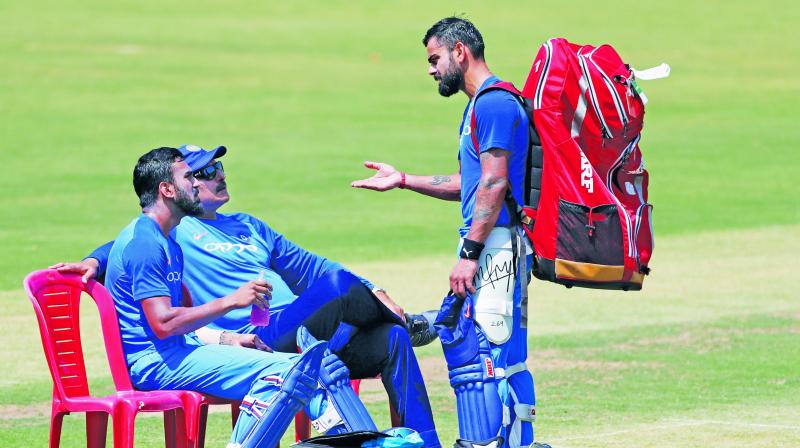More work lies ahead for KL Rahul

Before taking the field against Australia in the T20 series, Virat Kohli said clearly that form and performances in the IPL would not influence selections for the World Cup.
The IPL has played a major role in showcasing and fast-tracking players into the national team — ODIs or Tests — and the Indian captain clarification in that context assumes great significance.
Essentially, what Kohli was saying is that the final assessment of players will be in the 50-over matches, not in the shorter format. That is a fair approach for going into the sport’s most premier tournament; the selectors shouldn’t be confused between apples and oranges.
This is why somebody like K.L. Rahul, who was the stand-out batsman in the recent T20 series against Australia still cannot take it for granted that he has vaulted himself into the World Cup squad. Some more work lies ahead.
All told, the current ODI series against Australia extremely important for some Indian players seeking to play in the World Cup later this year. There is no short cut route into the squad and places will have to be earned.
In consonance with this thinking, and to provide as many players as possible to make their marks, the selectors chosen two teams (for the first two games, then the remaining three) for the five match series.
This does not completely discount some hopefuls who do not feature in either of the two teams.
Players like Dinesh Karthik and Umesh Yadav have been around for a while, while young speedsters Mohamed Siraj and Khaleel Ahmed have got a fair run in recent months, so their credentials are known.
Expert opinion suggests that barring injury 11 (perhaps 12) places in the Indian team for the World Cup have been sealed. While this would suggest a happy situation for the selectors and team management, it actually makes filling in the remaining places vexing.
Take, for instance, choosing a batsman to complete the top order. Who makes the cut from Rahul, Dinesh Karthik, Rishabh Pant who have been in the scheme of things in the recent past?
And how easy will it be to ignore the claims of Ajinkya Rahane, who spoke up recently about his own ambition for playing in the World Cup based on his past record in ODIs and ability to bat in English conditions?
Likewise, it was premature to write off Ravindra Jadeja despite the success of spin twins Yuzvendra Chahal and Kuldeep Yadav who have worked so brilliantly in tandem in the past year and a half.
Having clawed his way back into the side, Jadeja has been successful with ball and bat (admittedly on sub-continent pitches) and remains easily the best fielder in the country, attributes which are difficult to ignore.
The crux issue, however, is whether so many spinners can be accommodated when the tournament is not in the sub-continent, and with Kedar Jadhav doing such a fine job as part time slow bowler?
But if the all-rounder has to be someone who can bowl fast-medium or quicker — as seems the more likely given that the tournament is being played in England — will Vijay Shankar push the still-to-be-fully-fit Hardik Pandya to the wall?
And has the fast bowling complement been already decided with Bumrah, Shami and Bhuvneshwar as members or is there some hope still for Siddarth Kaul, Umesh Yadav, Khaleel Ahmed (who are not in the ODI teams vs Australia) or some other?
The reason why I’ve dwelt on this in some detail is to highlight the predicament of the selectors and the team management. While only a few spots are open, there are several claimants for these and time is running out rapidly.
This five-match ODI series against Australia, therefore, is extremely crucial. For some players, it is a make-or-break situation. If they can’t make an immediate and telling impact, they can only be spectators for the World Cup.

